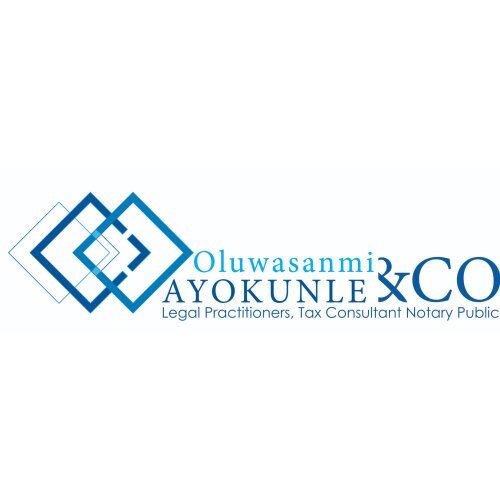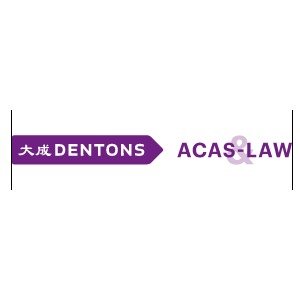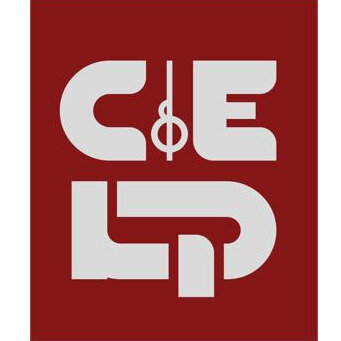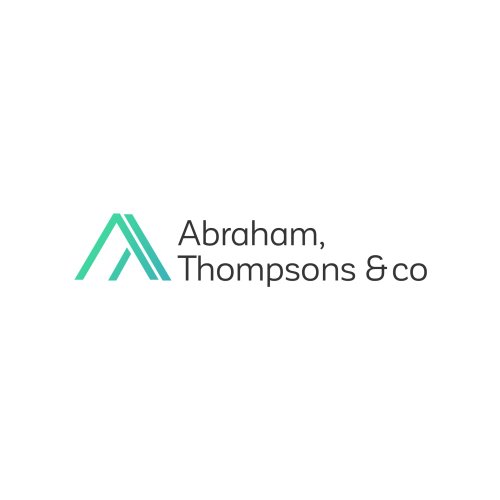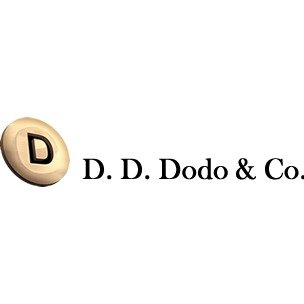Best Fintech Lawyers in Nigeria
Share your needs with us, get contacted by law firms.
Free. Takes 2 min.
Or refine your search by selecting a city:
List of the best lawyers in Nigeria
Legal guides written by Adeola Oyinlade & Co:
- Procedure and Requirements for Work Permit and Visas in Nigeria
- The Step-By-Step Procedure of How to Apply for Microfinance Bank License Online in Nigeria
- How to Ensure the Smooth Recognition and Enforcement of Foreign Judgments in Nigeria
About Fintech Law in Nigeria
Fintech, short for financial technology, refers to innovations and technologies that aim to compete with traditional financial methods in the delivery of financial services. Nigeria, being one of the leading African nations in the fintech space, has seen rapid growth in the sector due to its large unbanked population and increasing smartphone penetration. The Nigerian fintech landscape encompasses a wide range of services including mobile payments, digital banking, blockchain, peer-to-peer lending, and more. As fintech evolves, so do the regulatory and legal frameworks associated with it, necessitating up-to-date legal guidance for businesses and individuals involved in the industry.
Why You May Need a Lawyer
Legal assistance in the fintech sector is crucial due to various reasons including:
- Ensuring compliance with evolving regulatory requirements.
- Assistance with the licensing process for new fintech ventures.
- Drafting and negotiating contracts related to fintech services or products.
- Protecting intellectual property, particularly around innovative technologies.
- Handling disputes or litigations arising from fintech operations.
- Advising on data protection and cybersecurity to safeguard customer information.
- Navigating cross-border transactions and international fintech partnerships.
Local Laws Overview
The Nigerian fintech sector is primarily regulated by several key legislations and bodies:
- Central Bank of Nigeria (CBN): Oversees payment service providers, fintech licenses, and sets the regulatory framework under the CBN Act and the Banks and Other Financial Institutions Act (BOFIA).
- Securities and Exchange Commission (SEC): Regulates investments and markets involving fintech under the Investments and Securities Act.
- Data Protection: The Nigeria Data Protection Regulation (NDPR) offers guidelines on data privacy and protection, which is pivotal for fintech companies handling consumer data.
- Anti-Money Laundering (AML): Fintech entities must comply with AML regulations as set out by the Nigerian Financial Intelligence Unit (NFIU).
- Consumer Protection: The Consumer Protection Council (CPC) provides safeguards for consumer rights in fintech services.
Frequently Asked Questions
What is the legal requirement for starting a fintech company in Nigeria?
To start a fintech company, you need to incorporate with the Corporate Affairs Commission (CAC) and obtain relevant licenses from the CBN or SEC, depending on your business model.
Are cryptocurrencies legal in Nigeria?
While cryptocurrencies are not banned in Nigeria, the CBN has placed restrictions on cryptocurrencies by preventing financial institutions from dealing in them or facilitating payments for cryptocurrency exchanges, yet the SEC continues to explore frameworks for regulating virtual currencies.
How does data protection affect fintech companies?
Fintech companies must comply with the Nigeria Data Protection Regulation (NDPR) to ensure the privacy and protection of consumer data, requiring them to implement appropriate security measures.
What are the consequences of non-compliance with fintech regulations?
Non-compliance can result in penalties, fines, loss of license, or even prosecution, which can significantly impact business operations and reputation.
Can foreign fintech companies operate in Nigeria?
Yes, foreign fintech companies can operate in Nigeria, but they must adhere to local regulations, including licensing and tax obligations.
What are sandboxes, and how do they relate to fintech in Nigeria?
Regulatory sandboxes are frameworks set by regulators like the CBN allowing fintech companies to live-test their innovations under regulatory supervision without the full burden of regulatory compliance initially.
Is there a fintech association in Nigeria?
Yes, the Fintech Association of Nigeria (FinTechNGR) exists to foster the growth of fintech and to act as a collaborative hub for stakeholders.
How can fintech innovations be protected under Nigerian law?
Innovations can be protected under Nigerian intellectual property laws, including patents, trademarks, and copyrights, to secure proprietary technology and branding.
What steps are involved in a fintech dispute resolution?
Dispute resolution in the fintech sector may involve mediation, arbitration, or litigation depending on the nature and terms of the contracts involved.
How are electronic payments regulated in Nigeria?
Electronic payments are regulated under various CBN guidelines that dictate standards for payment processors, wallets, and other financial service providers to ensure security and efficiency.
Additional Resources
For those seeking additional information or legal advice in the fintech sector, consider the following resources:
- The Central Bank of Nigeria (CBN)
- Securities and Exchange Commission (SEC)
- Nigeria Data Protection Regulation (NDPR) documentation
- Fintech Association of Nigeria (FinTechNGR)
- Nigerian Financial Intelligence Unit (NFIU)
- Lagos State Internal Revenue Service (for tax-related inquiries)
Next Steps
If you require legal assistance in fintech, consider taking these steps:
- Research and identify law firms or legal experts specializing in fintech.
- Schedule consultations to discuss your legal needs and understand the services offered.
- Ensure the lawyer or firm you choose has a good track record and is well-versed in current fintech laws and regulations.
- Prepare documents and information relevant to your case or business for the consultation.
- Establish a clear communication line with your legal advisor for ongoing support and updates.
Lawzana helps you find the best lawyers and law firms in Nigeria through a curated and pre-screened list of qualified legal professionals. Our platform offers rankings and detailed profiles of attorneys and law firms, allowing you to compare based on practice areas, including Fintech, experience, and client feedback.
Each profile includes a description of the firm's areas of practice, client reviews, team members and partners, year of establishment, spoken languages, office locations, contact information, social media presence, and any published articles or resources. Most firms on our platform speak English and are experienced in both local and international legal matters.
Get a quote from top-rated law firms in Nigeria — quickly, securely, and without unnecessary hassle.
Disclaimer:
The information provided on this page is for general informational purposes only and does not constitute legal advice. While we strive to ensure the accuracy and relevance of the content, legal information may change over time, and interpretations of the law can vary. You should always consult with a qualified legal professional for advice specific to your situation.
We disclaim all liability for actions taken or not taken based on the content of this page. If you believe any information is incorrect or outdated, please contact us, and we will review and update it where appropriate.
Browse fintech law firms by city in Nigeria
Refine your search by selecting a city.







